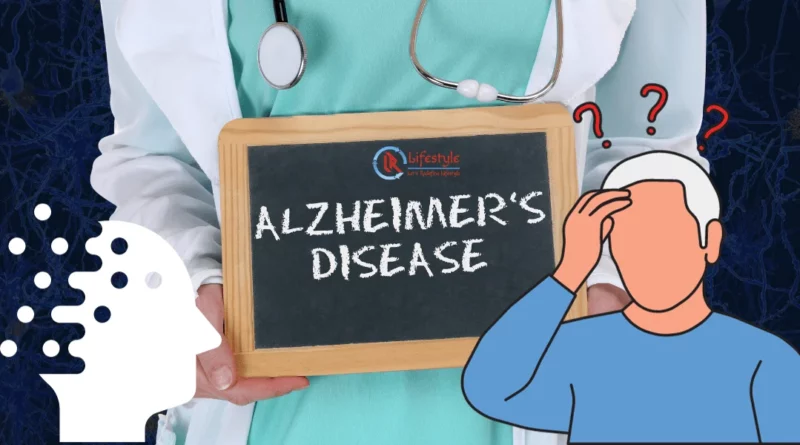Decoding Alzheimer’s Disease: Knowledge is Power
Alzheimer’s disease is a complex and devastating condition that affects millions of people worldwide. It’s a progressive neurodegenerative disorder that primarily impacts the brain, leading to a decline in cognitive function, memory, and the ability to perform daily activities. In this comprehensive guide, we’ll delve into the various aspects of Alzheimer’s disease, from its causes and risk factors to its stages and available care options.
What is Alzheimer’s Disease?
Alzheimer’s disease is the most common cause of dementia, which is a general term for a decline in cognitive ability severe enough to interfere with daily life. It’s important to understand that dementia is not a specific disease but rather a set of symptoms that can be caused by various underlying conditions. Alzheimer’s accounts for approximately 60-80% of all dementia cases.
Alzheimer’s Facts
Prevalence: Alzheimer’s disease is widespread and growing. Millions of people worldwide are affected by this condition, and the numbers are expected to increase as the population ages.
Memory Loss: One of the primary symptoms of Alzheimer’s is memory loss that disrupts daily life, especially recent memory. Individuals may forget important dates, and events, or repeat the same questions and conversations.
Challenges in Communication: Alzheimer’s progressively impairs an individual’s ability to communicate. They may struggle to find the right words, follow or join in conversations, or even repeat themselves.
Difficulty in Problem-Solving: As the disease advances, those affected may find it challenging to develop and follow a plan, solve problems, or make proper judgments. Handling money becomes increasingly difficult.
Personality and Mood Changes: Alzheimer’s can lead to changes in personality and mood. Individuals may become confused, suspicious, depressed, fearful, or anxious. They might easily get upset in unfamiliar or challenging situations.
5 A’s of Alzheimer’s Disease
The 5 A’s of Alzheimer’s Disease is one way to remember and understand commonly seen symptoms associated with Alzheimer’s disease. The 5 A’s stand for agnosia, anomia, aphasia, apraxia, and amnesia.
Agnosia: Agnosia is the inability to recognize familiar objects, tastes, sounds, and other sensations.
Anomia: Anomia is an inability to remember the names of things.
Aphasia: Aphasia is the inability to express oneself through speech. This may include a loss of the ability to speak or understand spoken, written, or sign language.
Apraxia: Apraxia is the inability to perform purposeful movements or once-familiar tasks, such as dressing, cooking, or shaving.
Amnesia: Amnesia is defined as a loss of memory.
Symptoms of Alzheimer’s Disease
The symptoms of Alzheimer’s disease can vary from person to person and typically progress over time. While memory problems are often the most recognized early signs, they are not the only indicators. Common symptoms include:
Memory loss: Especially struggling with recent events or conversations.
Difficulty in problem-solving: Trouble with tasks that involve multiple steps.
Confusion: About time, place, or people.
Misplacing things: Putting items in unusual places and struggling to retrace steps.
Changes in mood or personality: Mood swings, withdrawal from social activities, or becoming suspicious.
You might be interested: 10 Stress-Relief Techniques for a Calmer Mind
Diagnosing Alzheimer’s Disease
Diagnosing Alzheimer’s disease can be challenging, but early detection is crucial for effective management. Doctors typically use a combination of medical history assessments, physical exams, cognitive tests, and brain imaging to diagnose the condition. Early diagnosis allows individuals to access available treatments and plan for the future.
Alzheimer’s Disease Causes and Risk Factors
The exact cause of Alzheimer’s disease remains unclear, but researchers believe it’s a combination of genetic, environmental, and lifestyle factors. Some common risk factors include:
Age: Advancing age is the most significant risk factor. Alzheimer’s is more common among older adults, but it can affect individuals in their 40s or 50s (younger-onset Alzheimer’s).
Family History: Individuals with a family history of Alzheimer’s are at a higher risk.
Genetics: Certain gene mutations can increase the risk of Alzheimer’s, though they don’t guarantee its development.
Head Injuries: A history of severe head injuries can be a risk factor.
Heart Health: Conditions that affect the heart and blood vessels may also impact brain health.
Alzheimer’s and Genetics
While genetics play a role in Alzheimer’s risk, it’s essential to understand that having a family member with the disease doesn’t mean you’ll definitely develop it. Genetic testing can provide insight into an individual’s risk factors, but it’s a complex field, and the results may not always be definitive.
Alzheimer’s Stages
Alzheimer’s disease typically progresses through several stages:
Preclinical Alzheimer’s: Changes in the brain may begin years before symptoms appear.
Mild Cognitive Impairment (MCI): Mild memory problems become noticeable.
Mild Alzheimer’s: Memory and cognitive problems worsen, impacting daily life.
Moderate Alzheimer’s: Increased memory loss and difficulty with daily tasks.
Severe Alzheimer’s: Individuals require significant assistance with daily activities and lose the ability to communicate effectively.
Younger Onset Alzheimer’s
While Alzheimer’s is often associated with older adults, it can affect younger individuals as well. Younger-onset Alzheimer’s, also known as early-onset Alzheimer’s, occurs in people under the age of 65. It poses unique challenges as it can disrupt careers, finances, and family life at a relatively young age.
Preventing Alzheimer’s
While there is no guaranteed way to prevent Alzheimer’s, several lifestyle choices may reduce the risk:
Healthy Diet: Eating a balanced diet rich in fruits, vegetables, and omega-3 fatty acids may support brain health.
Physical Activity: Regular exercise can help reduce the risk of cognitive decline.
Mental Stimulation: Engaging in mentally stimulating activities, such as puzzles and reading, may protect brain function.
Social Engagement: Staying socially active and maintaining strong social connections is associated with a lower risk of Alzheimer’s.
Alzheimer’s Care
Caring for individuals with Alzheimer’s can be challenging, but various resources and support services are available to assist both patients and caregivers. Early planning and access to support can greatly improve the quality of life for those affected by the disease.
Frequently Asked Questions:
Q1: Is Alzheimer’s disease hereditary?
While genetics can play a role, Alzheimer’s is not solely hereditary. Having a family history increases the risk but doesn’t guarantee its onset.
Q2: Are there effective treatments for Alzheimer’s?
While there is no cure, some medications may temporarily slow down the progression of symptoms and improve the quality of life for individuals with Alzheimer’s.
Q3: Can lifestyle changes prevent Alzheimer’s?
While not a guarantee, a healthy lifestyle that includes a balanced diet, regular exercise, mental stimulation, and social engagement may reduce the risk of Alzheimer’s.
Q4: How can I support a loved one with Alzheimer’s?
Providing a safe and supportive environment, learning about the disease, and seeking professional assistance can help in caring for a loved one with Alzheimer’s.
Q5: How does Alzheimer’s disease affect daily life for patients?
Alzheimer’s gradually impairs memory, thinking, and behavior, making daily tasks and decision-making challenging. It can affect personal hygiene, financial management, and even recognizing familiar faces.
Q6: Are there support groups for Alzheimer’s patients and their families?
Yes, many communities offer support groups where individuals can share experiences, coping strategies, and emotional support. These groups are beneficial for both patients and their families.
Q7: Can Alzheimer’s be misdiagnosed?
Yes, especially in the early stages, Alzheimer’s can be mistaken for normal age-related memory decline or other types of dementia. A comprehensive evaluation by a specialist is crucial for an accurate diagnosis.
Q8: Is Alzheimer’s disease the same as dementia?
No, dementia is an umbrella term for a set of symptoms, including memory loss and difficulties with thinking and problem-solving. Alzheimer’s is the most common cause of dementia, but other conditions can also cause dementia.
Q9: Is there a cure for Alzheimer’s disease?
As of now, there is no cure for Alzheimer’s disease. Treatment aims to manage symptoms, slow down progression, and improve the individual’s quality of life.
Q10: Can lifestyle choices reduce the risk of developing Alzheimer’s?
Yes, adopting a healthy lifestyle, including regular exercise, a balanced diet, mental stimulation, and staying socially active, may help reduce the risk of developing Alzheimer’s disease.
Q11: How does Alzheimer’s disease progress over time?
Alzheimer’s typically progresses through stages, starting with mild memory loss and advancing to severe cognitive and functional impairments. The progression varies for each individual.
Q12: Is Alzheimer’s disease fatal?
Yes, Alzheimer’s disease is ultimately fatal. It is a progressive disorder that leads to severe cognitive decline and affects the individual’s ability to carry out essential bodily functions.
Also Read:
The Complete Guide to ADHD: Understanding, Managing, and Thriving
For News related to entertainment visit our entertainment website:
https://www.glamworldtalks.com/



